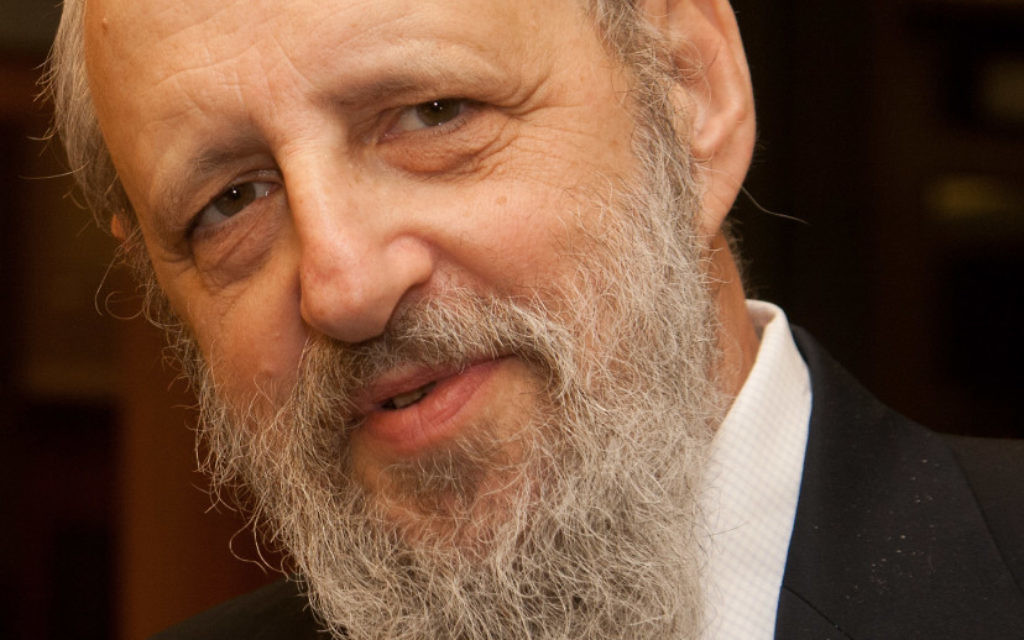Child Survivor Reveals Never-Ending Holocaust
Rabbi Joseph Polak was 50 years old and visiting Paris to give a lecture on Jewish law in July 1992 when he had an urge to open a door into his past by taking a quick trip to Germany to see Bergen-Belsen.
He couldn’t remember the Nazi camp, but he and his parents were held there for more than a year until they were crammed onto a freight car and shipped east in the final weeks of World War II. That final journey killed his father and nearly did the same to his mother before Soviet troops freed them.
It wasn’t until his return to Bergen-Belsen that Rabbi Polak began to understand how the end of the war in 1945 didn’t end the Holocaust for him and so many other survivors — a theme he explores in depth in his memoir, “After the Holocaust the Bells Still Ring,” which won a National Jewish Book Award last year.
Get The AJT Newsletter by email and never miss our top stories Free Sign Up
Depending on how he reads his audience, it’s also a theme he will discuss Sunday, May 8, when he is the keynote speaker at the Marcus Jewish Community Center’s Yom HaShoah commemoration.
His story of a child born in Nazi-occupied Holland in 1942, surviving Westerbork and Bergen-Belsen, and fleeing to Canada with his mother in 1948 has been seen as the continuation of the life of another Jewish child, Anne Frank, whose diary ends with her capture in Amsterdam.
Both the Franks and the Polaks were taken to Westerbork, then Bergen-Belsen, where Anne Frank died. Rabbi Polak noted one of her final diary entries: “Ultimately, I believe in the goodness of man.”
“Had she been able to write in Bergen-Belsen — where in the last month there was no food, none, or drinking water, and a high percentage of the prisoners had typhus, and people were eating each other — she would have never written that,” Rabbi Polak said.
He didn’t write his memoir as an afterword to Frank’s diary, but he praised the insight of the Canadian psychologist who made that connection.
“I wrote the book because I’m a writer, by nature, by disposition, since elementary school,” Rabbi Polak said. “I wrote the book because it had to be written. That’s how all good books come out. In writing it, I knew good things would happen if it was a good book.”
The book shows that liberation didn’t bring a fairy-tale future for survivors.
Death seemed certain for young Joseph’s mother, so he was adopted out, only to be reunited with her when she recovered months later. They stayed in Holland until 1948 but realized there was no future for them in a country where 85 percent of the Jews had been slain.
“There’s no country in which Jews were more betrayed than Holland,” Rabbi Polak said, criticizing the Dutch effort to portray Frank’s story of being hidden in an attic as typical across the nation.
He and his mother went to her former hometown of Montreal, where her father had been a cantor, but they found that the community didn’t want to hear about the Holocaust.
Rabbi Polak said the first prayer he learned was the Kaddish, not the Shema, so he could stand at the front of a strange shul every morning and mourn for a father he didn’t remember. And no one asked him why a 6-year-old was saying Kaddish.
That attitude rubbed off on Rabbi Polak. His mother was willing to talk about what happened in Europe, but the older he got, the less he wanted to hear it. Fortunately, his wife eventually recorded his mother’s story.
He found that other child survivors went through similar denial about their past as they tried to assimilate in new homes. He had a high school classmate who had survived Auschwitz, but they didn’t know about each other’s Holocaust past until a decade ago.
It turns out that Rabbi Polak, who spent most of his career as a Hillel rabbi in the Boston area, was right on time in delving into his past: Survivors tend to start talking and looking for answers at age 50.
Now 74, Rabbi Polak is trying to tell his story to as many people as possible. “I am terrified of the memory of the Holocaust going down the tubes … with the demise of the last survivors,” he said. “The world out there is getting tired of hearing this.”
—
Who: Rabbi Joseph Polak
What: Yom HaShoah commemoration
Where: Besser Holocaust Memorial Garden, Marcus Jewish Community Center, 5342 Tilly Mill Road, Dunwoody
When: 3:30 p.m. Sunday, May 8
Admission: Free; www.atlantajcc.org or 678-812-4161






comments